
Francesco Maurizio Cossiga was an Italian politician. A member of the Christian Democratic Party of Italy, he was prime minister of Italy from 1979 to 1980 and the president of Italy from 1985 to 1992. Cossiga is widely considered one of the most prominent and influential politicians of the First Republic.
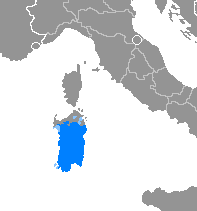
Sardinian or Sard is a Romance language spoken by the Sardinians on the Western Mediterranean island of Sardinia.

Sardinia is the second-largest island in the Mediterranean Sea, after Sicily, and one of the 20 regions of Italy. It is located west of the Italian Peninsula, north of Tunisia and immediately south of the French island of Corsica.
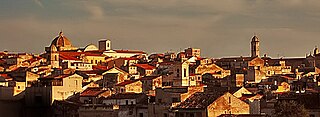
Sassari is an Italian city and the second-largest of Sardinia in terms of population with 127,525 inhabitants, and a Functional Urban Area of about 260,000 inhabitants. One of the oldest cities on the island, it contains a considerable collection of art.
The Diocese of Bosa was a Roman Catholic diocese in Sardinia that was founded in 1612 and merged into the diocese of Alghero-Bosa in 1986.

The Goceano is a historical and geographical region of center-north of Sardinia island, Italy. It covers a surface of 480 km2 and has a population of 13,000 inhabitants. It is located inside the Province of Sassari, the main urban centres are Bono, Italy, considered the traditional Goceano's chieftown, Anela, Benetutti, Burgos, Bultei, Nule, Esporlatu, Illorai and Bottidda.
Gerolamo Araolla, also known as Hieronimu Araolla, was a Sardinian poet and priest.
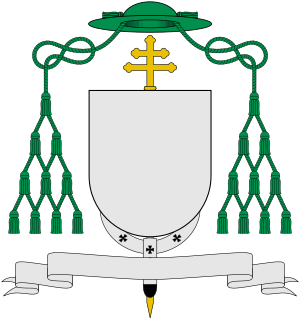
Salvatore Alepus was a Spanish Roman Catholic archbishop, who ruled the archdiocese of Sassari in the sixteenth century.

The Sardinians, or Sards, are a Romance language-speaking ethnic group native to Sardinia, from which the western Mediterranean island and autonomous region of Italy derives its name.

The Perfect Fusion was the 1847 act of the Savoyard king Charles Albert of Sardinia which abolished the administrative differences between the Mainland states and the island of Sardinia, in a fashion similar to the Acts of Union between Great Britain and Ireland in 1800.
Nicola Tanda was an Italian philologist and literary critic. He studied under Ungaretti and Sapegno at Rome. He was for over thirty years professor at the University of Sassari, first specialising in Italian literature, and then later in Sardinian philology and Sardinian literature. He was a leading advocate for minority languages and their literary expression in the island of Sardinia, including the Sardinian language and Algherese Catalan. As such he was an honorary member of ANPOSDI. He wrote the new Philology of Italians based on the European Charter for Regional or Minority Languages. He was founder and President of the Sardinian PEN Club. He was President of the jury of the Premio Ozieri literary prize founded in 1956 to promote new works composed in Sardinian tongues. He founded in 2003 the Centre for Study of Sardinian Philology. As an editor/director he has guided the publication of over 100 volumes written in Sardinian languages.

The literature of Sardinia is the literary production of Sardinian authors, as well as the literary production generally referring to Sardinia as argument, written in various languages.
Sardinian Literary Spring is a definition of the whole body of the literature produced in Sardinia from around the 1980s onwards.
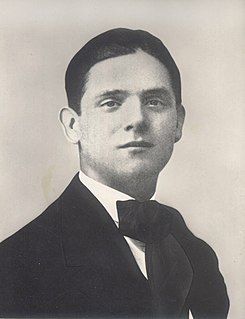
Attilio Deffenu was an Italian journalist, soldier, exponent of Sardinian autonomism and a syndicalist.

Giovanni Francesco Guidi di Bagno (1578–1641) was an Italian cardinal, brother of cardinal Nicola Guidi di Bagno and nephew of cardinal Girolamo Colonna.
Pietro Francesco Ferranti, also known as cavalier Ferrante was an Italian painter of the Baroque period.

Antonio Lo Frasso was a Sardinian poet, writer and soldier. He was the author of Los diez libros de Fortuna de Amor, a work mentioned by Miguel de Cervantes in Don Quixote and edited in London by the lexicographer Pedro Pineda who considered valuable this work for his kindness, elegance and spirit.
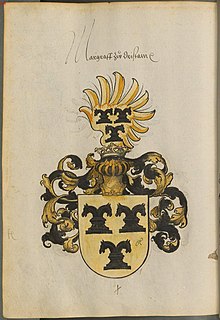
The Marquisate of Oristano was a marquisate of Sardinia that lasted from 1410 until 1478

The Free Municipality of Sassari or Republic of Sassari was a state in the region of Sassari in Sardinia during the 13th and 14th centuries, confederated first with the Republic of Pisa as a semi-autonomous subject and later with the Republic of Genoa as a nominally independent ally. It was the first and only independent city-state of Sardinia during the early renaissance.
Francesco Cesare Casula is a Sardinian historian from Italy.














